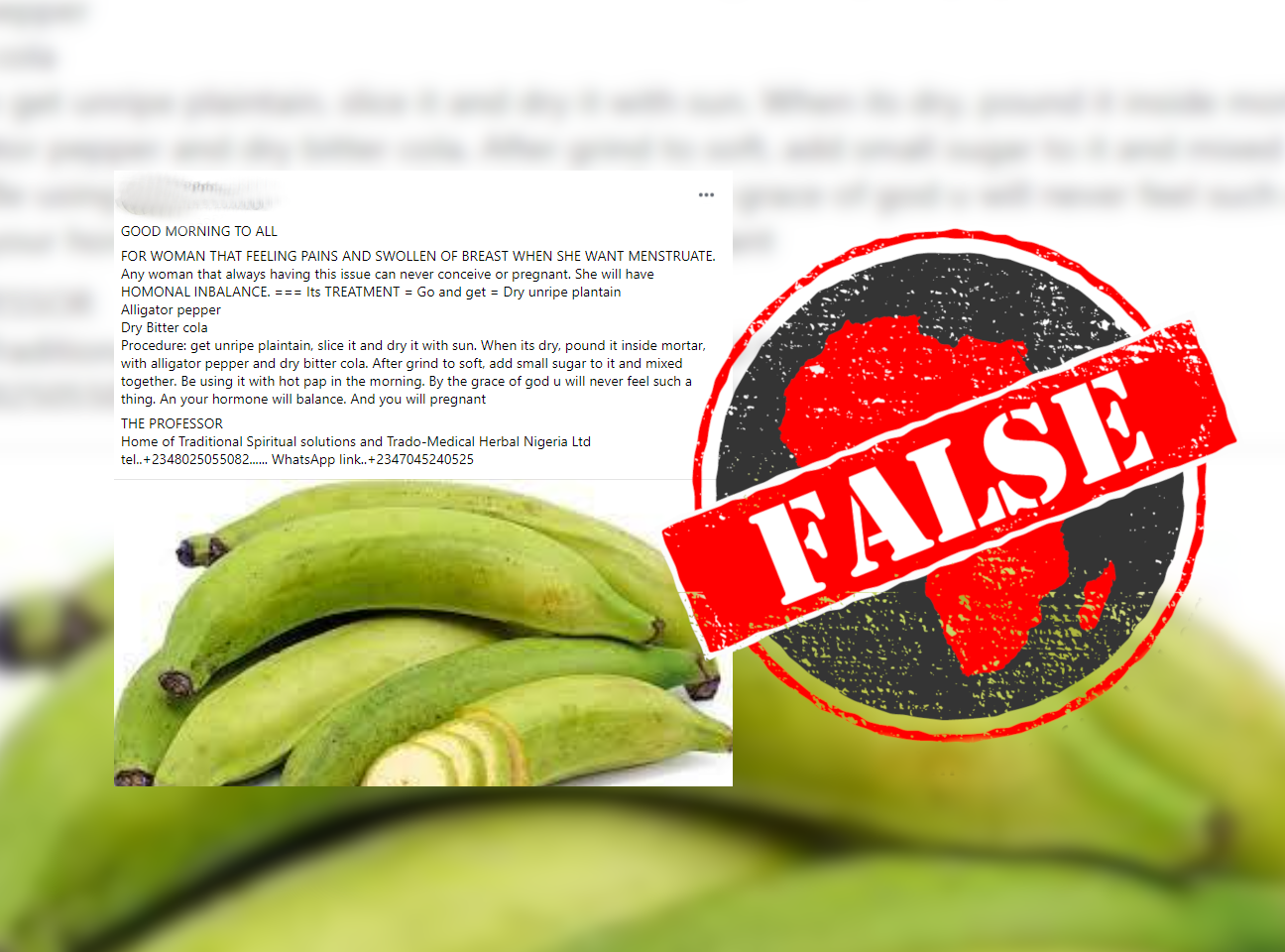A Facebook post shared in Nigeria claims that a blend of dried unripe plantain, alligator pepper and bitter kola cures hormonal imbalances in women.
The post claims that if a woman “feels pains and swollen breasts” before menstruation, then this indicates “hormonal imbalance” and she can “never conceive or get pregnant”.
It then details how to dry out unripe plantain in the sun and mix it with alligator pepper and bitter kola to eat with “hot pap in the morning” in order to “balance” the hormones.
Hormones are chemicals produced in the endocrine glands and help control many of the body’s major processes. But occasionally the wrong amount of a particular hormone is produced, leading to a hormonal imbalance.
A 2015 research paper on hormonal imbalance in young women listed the use of contraceptive medications, stress, poor diet, drug use and environmental pollution as some of the causes of hormonal imbalances.
But is this plantain, pepper and bitter kola remedy an effective treatment?

No proof plantain mix cures hormonal imbalance
Africa Check asked Adekunle Oguntayo, professor of obstetrics and gynaecology at the Ahmadu Bello University in Zaria, northern Nigeria, whether eating this mixture daily would have any effect on a woman’s hormones.
“To put it simply, there is no scientific evidence to back that claim,” Oguntayo told us.
Oguntayo also said that swollen breasts close to menstruation is not a sign of a hormonal imbalance.
“I have never heard of such a thing in all my years of academic working experience. At that stage of a woman’s cycle, it is to be expected that the breasts might swell. It is simply not true that women who experience this are unable to conceive,” Oguntayo said.
Republish our content for free
For publishers: what to do if your post is rated false
A fact-checker has rated your Facebook or Instagram post as “false”, “altered”, “partly false” or “missing context”. This could have serious consequences. What do you do?
Click on our guide for the steps you should follow.
Publishers guideAfrica Check teams up with Facebook
Africa Check is a partner in Meta's third-party fact-checking programme to help stop the spread of false information on social media.
The content we rate as “false” will be downgraded on Facebook and Instagram. This means fewer people will see it.
You can also help identify false information on Facebook. This guide explains how.


Add new comment